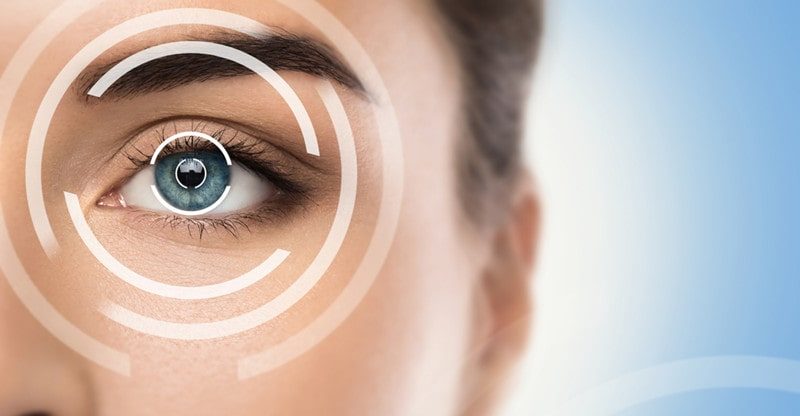What to Expect from LASIK Surgery?
If you have decided to get rid of the hassle of wearing eyeglasses or contact lenses, LASIK surgery is the perfect answer. Most people have heard about the LASIK procedure at some point but they rarely know what to expect with the procedure before, during, and after. Today, we will discuss in detail what to expect from LASIK surgery.
What is LASIK?
LASIK stands for laser-assisted in-situ keratomileusis. It is a procedure that reshapes the cornea to resolve the refractive errors that cause blurry vision. LASIK surgery is a method that can successfully treat the following conditions:
- Myopia, also known as nearsightedness, is a condition in which the cornea is more curved that causes light to focus in front of the retina resulting in blurry vision for distant objects.
- Hyperopia, also known as farsightedness, is a condition in which the cornea becomes flat causing blurry vision for nearby objects.
- Astigmatism is a condition when the cornea shape becomes so irregular that it affects both nearby and distant vision making everything appear blurry.
With the help of LASIK surgery, these refractive errors can be corrected precisely and the proper vision of an individual can be restored.
What to Expect from LASIK Surgery?
At different stages, from consultation, diagnosis, to the surgery, you will have to follow a different set of instructions to make sure that the surgery is successful. You can openly discuss every aspect of the treatment with the doctor and he/she will guide you at every step of the treatment.
Before LASIK Surgery
Once you decide that you want to undergo surgery, the first thing you need to do is to determine whether you are an ideal candidate for LASIK or not. You will be considered a good candidate for LASIK if you satisfy the following conditions:
- Your age should be more than 18 years.
- You must have had a stable eye prescription for the last one or two years.
- You should not have any health condition that could affect the success of LASIK.
- Your cornea must be completely healthy.
- Your visual acuity must be more than 20/40.
If you have any disease, such as eye infection, very thin cornea, glaucoma, cataracts, diabetes, or high refractive error, then the doctor may deem you ineligible for LASIK surgery.
The doctor will carry out some tests to make sure that you qualify for LASIK. Afterward, you will have to follow some basic instructions, such as:
- Stop wearing contact lenses a week before the surgery and switch to glasses full-time.
- Stop using creams, lotions, makeup, or perfumes before the day of the surgery.
- Tell your doctor about your past and present medical and eye conditions.
- Create a list of all the medications you take and describe it to the doctor so that he can verify that none of the medicines will cause side effects during or after the surgery.
The doctor will perform a thorough eye exam and tell you what you can expect from the treatment. Also, the doctor will advise you to bring someone along with you to drive you to and from the hospital/clinic before and after the surgery.
During LASIK Surgery
The duration of surgery is a maximum of 30 minutes and it is performed on an outpatient basis.
- You will lie on your back on a reclining chair and the surgeon will operate the laser system.
- Eye numbing drops will be placed in your eyes and they will be cleaned properly.
- An instrument called a lid speculum will be used to hold your eyes open.
- A device called a microkeratome or laser keratome will be used to cut a flap of your cornea.
- You may experience slight discomfort during this part. The laser energy is focused on the corneal tissue after the flap is lifted.
- The doctor will program the computer prior to the procedure and the laser will be focused on your eyes to vaporize the corneal tissue. After that, the flap is put back into the original position.
- An eye shield will be placed over your eyes for protection against rubbing, pressure, or excess light until it heals.
The doctor will also brief you about the dos and don’ts after the surgery to make sure that you recover well.
After LASIK Surgery
Immediately after the surgery, you will feel a burning or itching sensation in your eyes. You may also feel like something is stuck in your eyes. The doctor will prescribe some pain medications for relief. You will have to follow some precautions after the surgery very carefully, including:
- Do not rub your eyes at any cost as it can displace the corneal flap and affect the outcome of the surgery.
- Wear a protective shield as much as possible to ensure that your eyes stay protected from direct sunlight.
- Take some days from work to get proper and complete rest.
- Avoid watching TV, mobile screen, computer, or any other digital screen.
- Do not use makeup products, skin creams, or hair products that can irritate the eyes.
- Avoid swimming pools and showering for at least two weeks.
- Sleep properly to allow your eyes to heal as soon as possible.
- Use the prescribed eye drops as directed without forgetting.
- Stay in touch with the eye doctor so that they can monitor your recovery and instruct you accordingly.
You will have to visit the doctor in the first week, the second week, and then after a month. During the checkups, the doctor will evaluate your vision and see if you need additional tips for a smoother recovery.
The Bottom Line
After undergoing LASIK surgery, your vision will improve within 24-48 hours. Then, you will only have to care for your eyes as instructed by the specialists to make sure no complications arise after surgery.
Generally, LASIK is the safest and most effective procedure for the treatment of blurry vision. You only need to get in touch with a reliable daycare service provider like Pristyn Care to undergo LASIK surgery. You can consult their ophthalmologists and determine whether you can have LASIK surgery and what to expect from the procedure.



